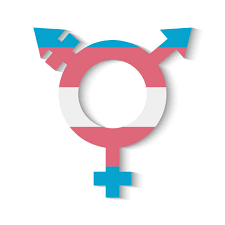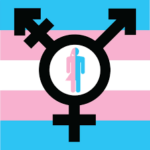In a world where identities and gender roles are constantly evolving, the term "Born Man" carries a unique significance that deserves exploration. This phrase isn’t just about biological sex; it encompasses a range of social, emotional, and cultural dimensions that define what it means to be a man in today’s society. As we dive into this concept, we’ll unpack its origins, key traits, cultural implications, and the challenges faced by those who identify as born men.
Understanding what it means to be a Born Man goes beyond surface-level definitions. At its core, being a Born Man suggests an individual who identifies with traditional male attributes—strength, resilience, and leadership—but also acknowledges the complexities of modern masculinity. This duality allows for a broader discussion on how societal norms and expectations shape our understanding of manhood, both positively and negatively.Low Estrogen Levels SymptomsWhat Does A Transgender Woman Look LikeTop Surgery Vs Breast Reduction
The Origins of the Term "Born Man" in Society
The term "Born Man" has roots that date back to centuries of societal norms surrounding gender. Historically, societies have defined manhood in rigid terms, often tied to physical prowess, authority, and stoicism. As a result, the concept of being a "Born Man" emerged as a way to delineate those who fit neatly into these predefined roles versus those who may not. This terminology can often carry implications of privilege, particularly in various cultures where masculinity is celebrated and protected.
In contrast, the evolution of the term has also led to discussions about inclusivity. As gender identity becomes a more fluid concept, many are challenging traditional definitions and asking what it truly means to be a Born Man. This has paved the way for a more nuanced understanding, recognizing that manhood can be experienced differently across various cultures and life experiences.
Key Traits That Define a Born Man: Let’s Break It Down
When discussing what defines a Born Man, several key traits often come to the forefront. Traditional attributes such as strength, courage, and assertiveness frequently dominate the conversation. However, modern interpretations also embrace emotional intelligence, vulnerability, and compassion as essential traits that make a man whole. These evolving definitions challenge old stereotypes, allowing for a more inclusive understanding of masculinity.
Moreover, a Born Man is often characterized by a sense of responsibility, not just for oneself but for others as well. This could mean being a caring father, a loyal friend, or a reliable community member. The emphasis on interpersonal relationships and community support marks a shift away from the solitary, stoic archetype of manhood, showing that being a Born Man encompasses a blend of strength and sensitivity.
How Culture Shapes Our Understanding of Born Manhood
Cultural contexts play a significant role in shaping our understanding of what it means to be a Born Man. In some cultures, manhood is tied closely to economic contribution and family leadership, while in others, emotional expression might be more accepted. This cultural lens influences personal identity and societal expectations, often dictating how individuals are perceived and treated based on their adherence to these norms.
Furthermore, media representations significantly influence ideas about manhood. Movies, literature, and social media platforms often propagate specific images of men—be it the rugged hero or the nurturing caretaker—which can either reinforce stereotypes or challenge them. As cultures continue to evolve, so too does the representation of Born Men, leading to a richer tapestry of what it means to embody this identity.
The Myths and Realities of Being a Born Man Today
Despite the progress made in understanding manhood, several myths continue to persist about Born Men. One common misconception is the idea that vulnerability equates to weakness. In reality, demonstrating vulnerability often requires immense strength and courage, traits that are essential for healthy emotional expression. Additionally, the myth that men must always be providers and protectors creates stress and unrealistic expectations that many struggle to meet.
On the other hand, the realities faced by Born Men today are varied and complex. Many experience societal pressure to conform to traditional masculine ideals, leading to issues such as mental health challenges and isolation. These pressures can make it difficult for Born Men to embrace their identities fully, leading to a generation that grapples with conflicting ideals of masculinity while seeking authentic self-expression.
Famous Born Men in History: Who Made the Cut?
Throughout history, there have been numerous figures often labeled as notable Born Men, each representing various traits and ideals associated with manhood. Figures like Mahatma Gandhi exemplify the strength found in non-violence and compassion, while others, like Martin Luther King Jr., showcase leadership and resilience in the face of adversity. Their legacies provide blueprints for how to embrace manhood in diverse ways.
Additionally, the sports world has produced its share of iconic Born Men. Athletes like Muhammad Ali not only excelled in their fields but also stood up for social justice, challenging traditional notions of masculinity. These figures inspire others to redefine what it means to be a man, illustrating that true strength lies in character, conviction, and the ability to uplift others.
Challenges Faced by Born Men in the Modern World
In today’s fast-paced society, Born Men face unique challenges that often stem from outdated gender norms. The pressure to conform to traditional masculine ideals can create mental health issues, as men may feel they need to suppress emotions or avoid seeking help. This stigma around vulnerability can lead to feelings of isolation and difficulty in forming genuine connections with others.
Additionally, Born Men often grapple with the expectations of balancing career and family life. The traditional role of the man as the primary breadwinner is being challenged, resulting in conflict as many navigate shared responsibilities in the home. This societal shift can create confusion and stress, as men strive to find their place in a world that is constantly redefining gender roles.
Embracing Your Identity: Tips for Born Men Everywhere
For Born Men looking to embrace their identity in today’s world, the first step is to acknowledge that there’s no one-size-fits-all definition of manhood. Allowing oneself to express emotions, seek help, and engage in conversations about mental health can lead to personal growth and deeper connections with others. Recognizing that vulnerability is not a weakness but a strength can empower Born Men to redefine their experiences.
Additionally, surrounding oneself with supportive communities can be invaluable. Engaging in open dialogues about masculinity and sharing personal stories can foster understanding and acceptance. By embracing diversity within the male experience, Born Men can cultivate an identity that reflects their true selves while contributing to a broader cultural shift toward inclusivity and authenticity in manhood.
In summary, the concept of a Born Man is rich and multifaceted, shaped by history, culture, and personal experience. As societal norms continue to evolve, the understanding of what it means to be a Born Man is expanding, allowing for a more inclusive and compassionate view of masculinity. Embracing this identity means breaking free from stereotypes, fostering emotional intelligence, and connecting with others in meaningful ways—ultimately leading to a more fulfilling life for Born Men everywhere.


